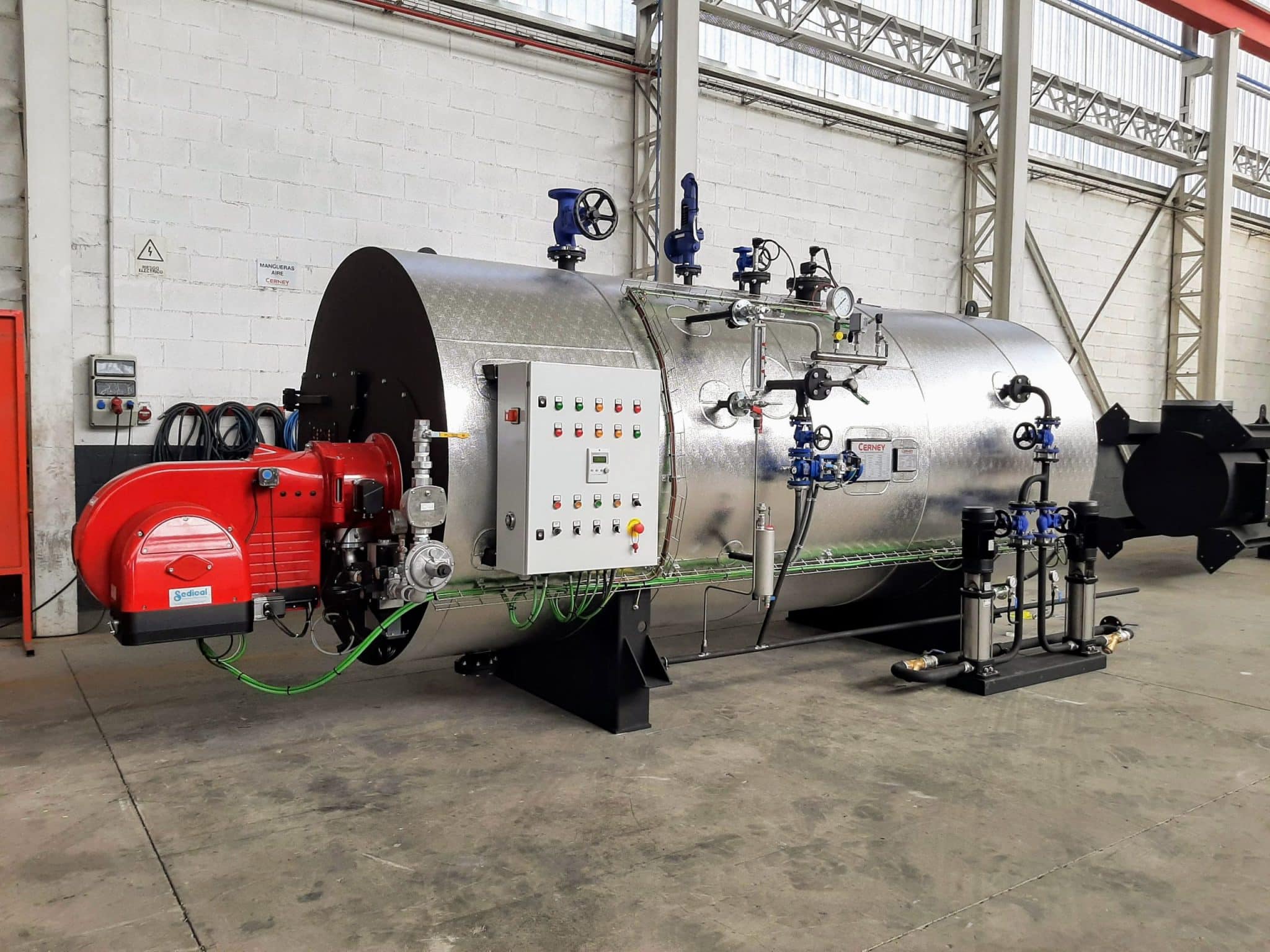Which is the usual way to work for an industrial boiler?
Industrial boilers, of the conventional type, are pressure equipment in which, through a burner fed by a liquid or gaseous fuel, we create a flame, which after a heat exchange will increase the temperature of the water inside the boiler. Thanks to this water it will be possible to obtain steam or superheated water.
CERNEY boilers are of the fire tube type. Fumes from the combustion circulate through the tube bundle of the boiler, giving up their energy to the water that surrounds them. Finally, they will go out into the atmosphere through the chimney.
At CERNEY, our technical team calculates and designs the boilers in detail according to customer requirements. Our constant investment in I+D+I has made us the leading company in the sector, managing to design the most efficient boilers on the market. Unlike other manufacturers, focused on reducing costs and standardizing equipment, at CERNEY we focus on optimizing processes to maximize efficiency and production levels, which largely depend on how our customers use the boiler.
The use of steam or superheated water as carrier heat fluids cover all types of sectors, such as food and beverages, metallurgy, foundry, chemical, pharmaceutical, paper, automotive, machinery production, and electricity generation industries. To sum up, every process that requires highly efficient equipment, high availability, and reduced maintenance.
Parts of industrial boiler
In the fire tube boilers, we can find the following elements:
- Burner. A device that generates combustion by mixing fuel with an oxidizer. This equipment is located outside the boiler.
- Furnace or combustion chamber. A place where the flame from combustion is generated. Also, it is the first location where gas/water heat exchange takes place.
- Gas circuit. A place where the combustion gases circulate once they have originated in the furnace. Usually, there are two passes: “the second pass “and “the third pass”, also known as tube bundles.
- Firebox. That part where the exhaust gases are stored and change direction. After they will later be expelled toward the stack. There are two smoke boxes: the front gases and the back gases.
- Water chamber. That part of the boiler is submerged in water.
- Steam chamber. It matches the upper part of the boiler, above the water chamber, where the steam produced is stored.
- Chimney/Stack. An isolated duct is ready to drive the exhaust fumes to go outside.
- Control cabinet. Electric cabin to manoeuvre, regulate, and control the parameters of the boiler.
- Economizer. An auxiliary equipment is located outside the boiler. It consists of a water-tube interchange of gases/water. It is located before the chimney. The remaining heat in the exhaust gases is used before it is expelled into the atmosphere. Thanks to this equipment, performance increases of up to 5% can be achieved.
- Other relevant elements. Valves and instrumentation (non-return valves, safety valves, pressure gauge, feedwater pumps…), bed frame or feets that support the boiler, stairs, and access ramps for maintenance and cleaning of the boiler…
